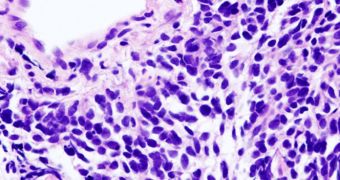Over the past few years, a large number of studies have been focused on the correlations that appear to exist between a history of childhood adversity and abuse, and a person's health later on in life. Almost all of them have determined that there is a direct connection between the two, which is very worrying, given the fact that the incidence of verbal and physical abuse on children is constantly on the rise. A new investigation has again confirmed these findings, showing that a history of adversity can lead to a higher risk of developing lung cancer later on in life.
“Adverse childhood experiences were associated with an increased risk of lung cancer, particularly premature death from lung cancer. Although smoking behaviors, including early smoking initiation and heavy smoking, account for the greater part of this risk, other mechanisms or pathophysiologic pathways may be involved,” experts David Brown and Robert Anda, who are both based at the US Centers for Disease Control and Prevention (CDC), in Atlanta, explain. They have studied the effects of different types of abuse, of domestic-violence exposure, of growing up in a household with junkies or people who went to jail, and of parental separation, on the incidence of lung cancer in the children later on.
The researchers have also determined that one of the most important factors that contributed to the rising incidence of the terrible disease is the fact that many of those who had been subjected to abuse as children tended to pick up smoking, and to smoke more heavily than others. This habit has been linked to an increased risk of lung cancer in many well-documented studies, but the recent investigation also shows that other influences besides cigarettes are also at work here. Details of the research appear in the latest issue of the respected scientific journal BMC Public Health.
“Compared to those who claimed no childhood trauma, people who experienced six or more traumas were about three times more likely to have lung cancer, identified either through hospitalization records or mortality records. Of the people who developed, or died of, lung cancer, those with six or more adverse events in childhood were roughly 13 years younger at presentation than those with none. People who had experienced more adverse events in childhood showed more smoking behaviors,” Brown reveals.
The scientists and their team analyzed data collected over two years (1995-1997) from 17,337 people, who reported on their history of childhood adversity. The study then looked at the same individuals' reports of lung-cancer incidence in 2005. The correlation immediately became obvious, the team reports in the journal entry. One of the main lessons to be drawn from this investigation is that health and social programs should be developed and aimed at reducing the burden of stressors on children, especially at a very young age. Otherwise, they run the risk of dying prematurely.

 14 DAY TRIAL //
14 DAY TRIAL //